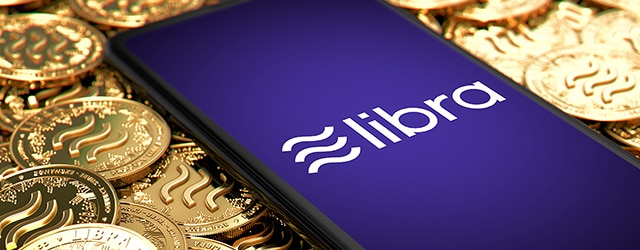Facebook's new currency faces regulatory hurdles.

Facebook’s announcement of a new cryptocurrency, Libra, and accompanying wallet called Calibra sparked a flurry of news coverage and criticism, but details about the ambitious project are scant ahead of its launch in the first half of 2020. Given Facebook’s size, scale and reach, Libra will be closely scrutinized by governments, banks and consumers.
We do know that Libra is to be a stablecoin, pegged to a basket of fiat currencies; that it is currently backed by 28 companies including PayPal, Mastercard, Visa, Uber and Lyft; and it that it will be available on Facebook platforms Messenger and WhatsApp.
Sankar Krishnan, executive vice president of Banking and Capital Markets at consultant Capgemini, praises the vision of “moving money much like you can send an email or a picture or an emoji.” Even so, he adds, a lot of questions need to be answered.
Much of the criticism stems from regulatory, timing and privacy concerns. If Zuckerberg appoints a team of bankers and regulators to examine Libra to highlight risks and mitigants, he would go a long way toward silencing critics, Krishnan says. “Let us introduce it first to Facebook users,” he suggests. “Let us also give it a maximum transaction value of, say, $250 or less.”
Crypto fans are averse to any controls over their money, but such libertarian ideals ignore the risks. The creators of Libra could set up a fund to mitigate monetary losses to anyone in its ecosystem, Krishnan says, “or, if it was regulated, banks could use it to create global liquidity.”
Given that Facebook has 2.4 billion active users, Krishnan also suggests picking the top 10% from a KYC/AML perspective for an initial test run: “Let us deploy analytics on this user group and share the findings with the regulators before getting Libra approved and extended to all users.”



